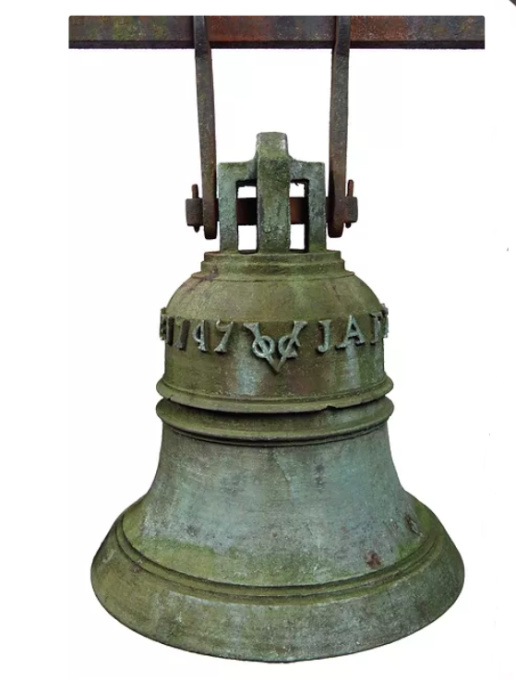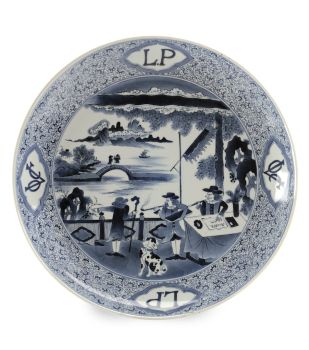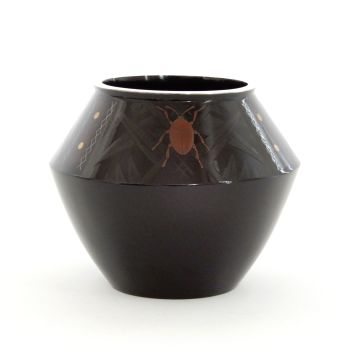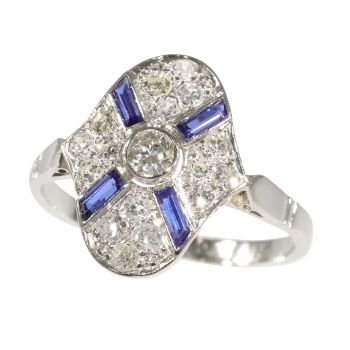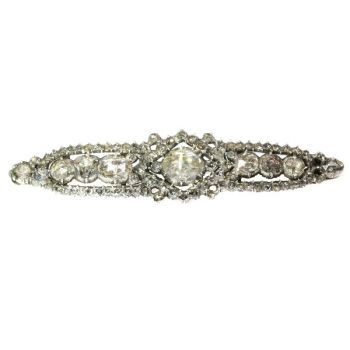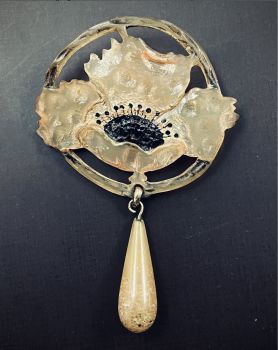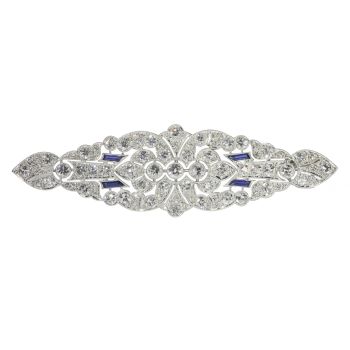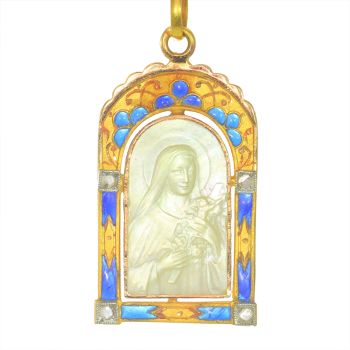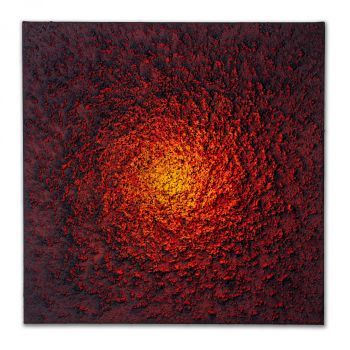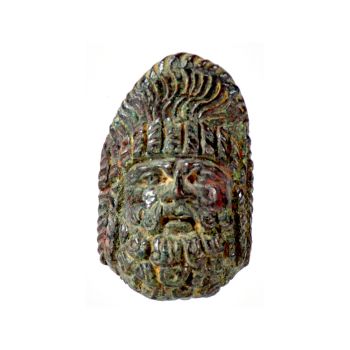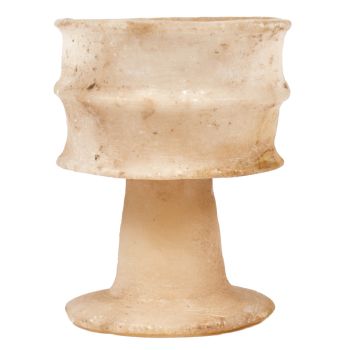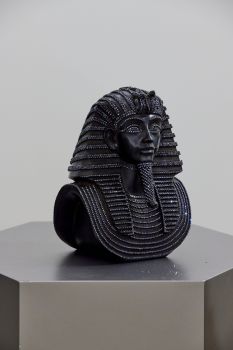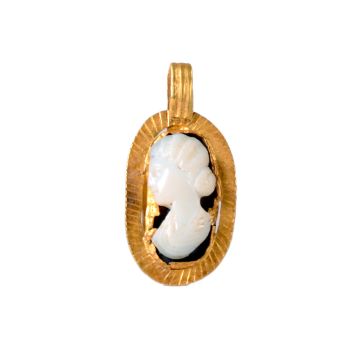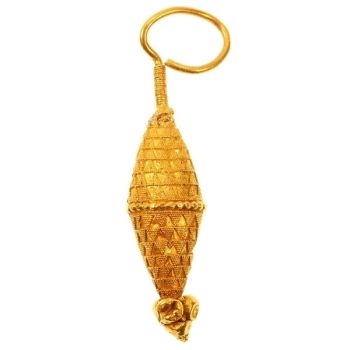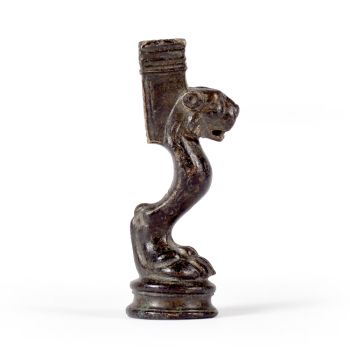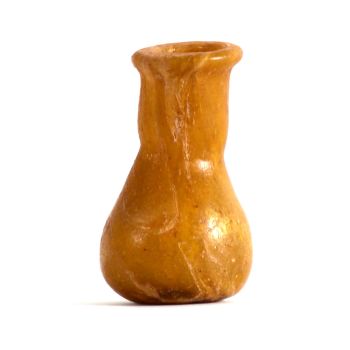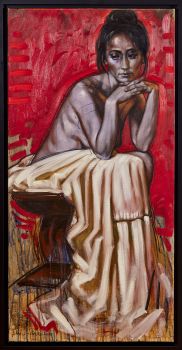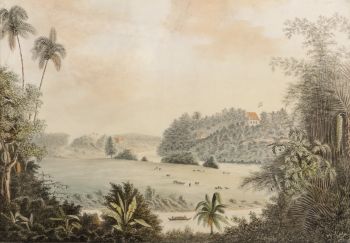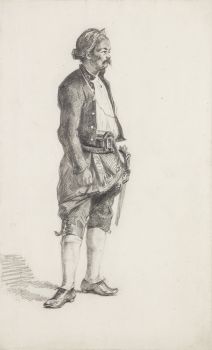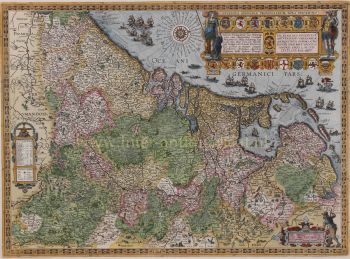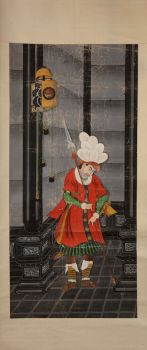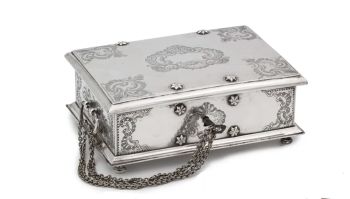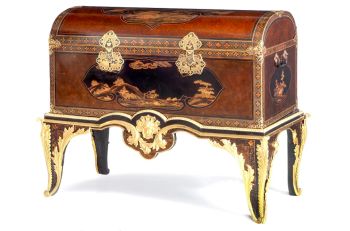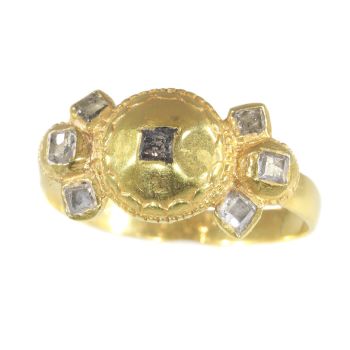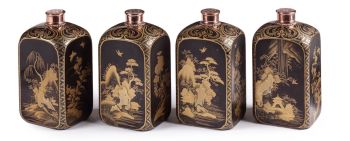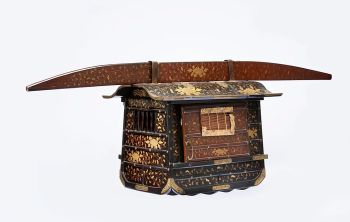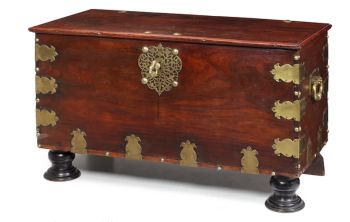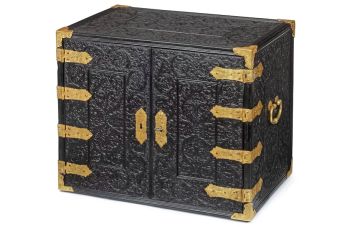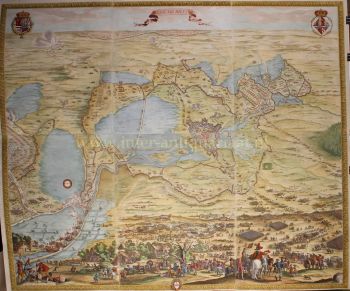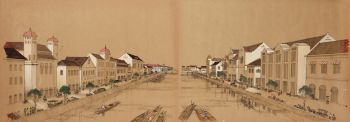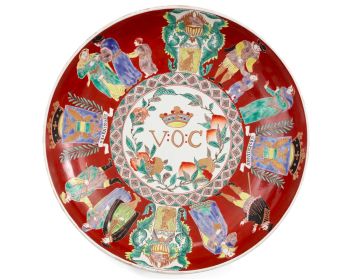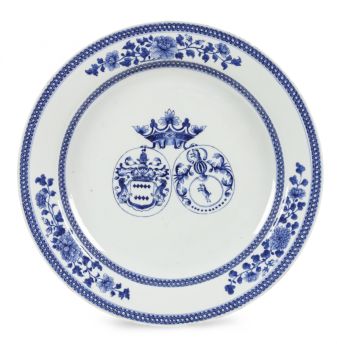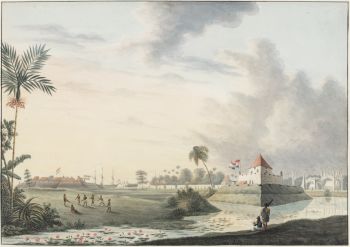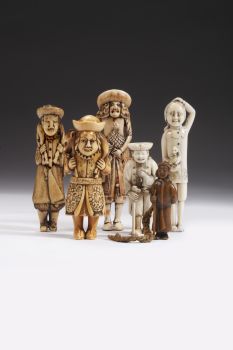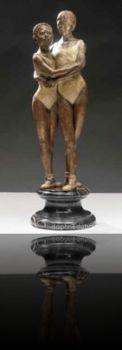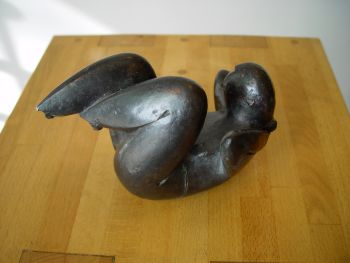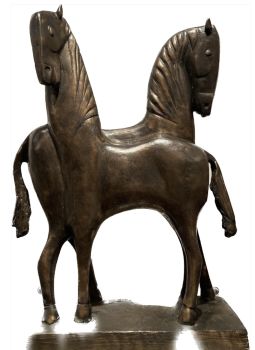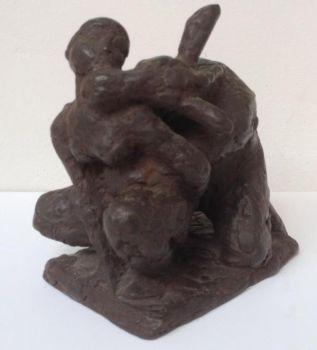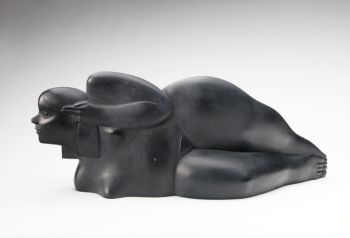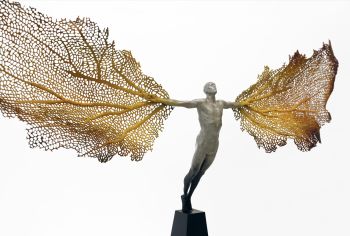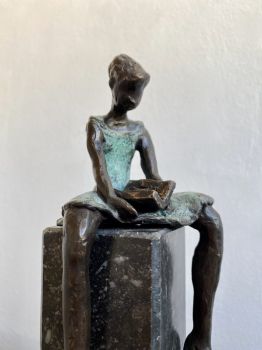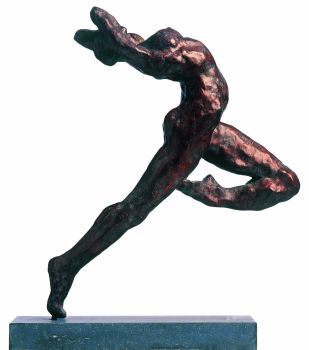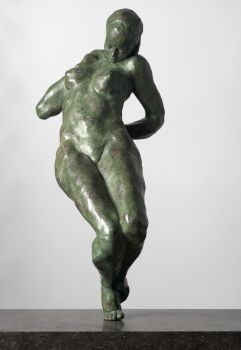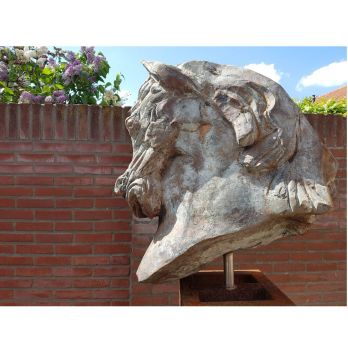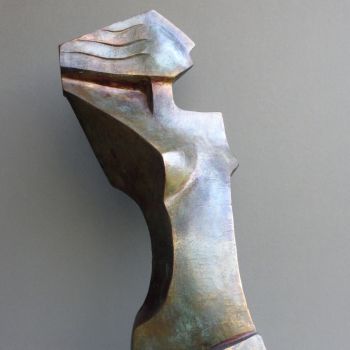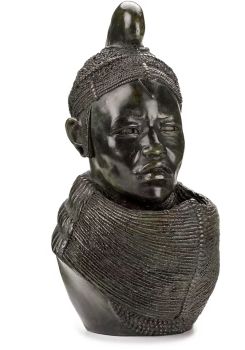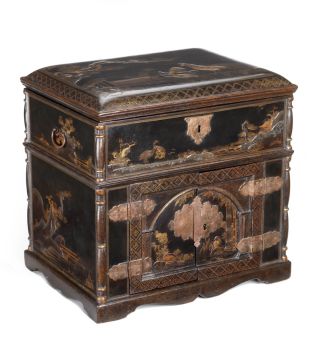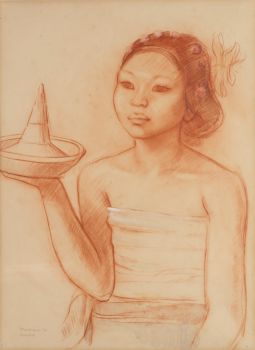The bell of the VOC fortress in Jaffna, Sri Lanka 1747
Artiste Inconnu
BronzeMétal
44 ⨯ 36 cm
Prix sur demande
Zebregs & Röell - Fine Art - Antiques
- Sur l'oeuvre d'art
The bell of the VOC fortress in Jaffna, Sri Lanka, marked JAFFANAPATNAM Ao 1747 VOC Cast in Jaffna or Colombo, 1747 H. 44 x Diam. 36.5 cm In 1658 Rijcklof van Goens (1619-1682) conquered Jaffnapatnam, a crucial Portuguese town on the North-East coast of Sri Lanka, for the VOC. For an important portrait of him by Jürgen Ovens, see Uit Verre Streken, March 2018, no. 4. Within two decades of conquering, the Dutch built a new fortress at Jaffna overlooking the lagoon, as they considered the old Portuguese structure to be out of date. The new fort, built according to the Dutch notions, was provided with a new church named the Kruys Kerk, which was still in the fort as a museum in the 1990s. The two bells from the old Portuguese Church of the Lady of Miracles, one large and one small with legend ‘Nossa Senhora Dos Milagres de Jafanaptao 1648’ were hung in the new church. The smaller of the two continued to hang in the tower of the Jaffna church, but was eventually removed for safety and lodged in the vestry. The fortress has long been considered by historians and archaeologists to be one of the largest, strongest and best-preserved forts built by a European colonising power in Asia. However, during the severe struggle in the 1990s between the Tamil Tigers and the Sri Lankan army, which had a base in the old Dutch fort, the castle and the Kruys Kerk were largely destroyed. With financial aid from the Netherlands, the castle is being restored, but the church will unfortunately not be rebuilt. The present bell, with the VOC monogram and dated 1747, is likely to have been the bell of the belfry inside the fort or above the gate, used to call people to work, or to call the alarm. A bell with the monogram of a trading company is not very likely to have been a church bell to call people to church. Provenance: Stenton House on the River Tay, near Dunkeld, Perthshire. Stenton Estate belonged to the Scottish Stewart family. The original part of the house dated to the 17th century with extensions in the 18th and 19th centuries. Captain James Stewart (1784-1843), who died in Colombo, possibly took the bell from the fortress and sent it to the family estate in Scotland. The bell remained in Stenton House garden until the house was sold at the end of 2019.
- Sur l'artiste
Il peut arriver qu'un artiste ou un créateur soit inconnu.
Certaines œuvres ne doivent pas être déterminées par qui elles sont faites ou elles sont faites par (un groupe d') artisans. Les exemples sont des statues de l'Antiquité, des meubles, des miroirs ou des signatures qui ne sont pas claires ou lisibles, mais aussi certaines œuvres ne sont pas signées du tout.
Vous pouvez également trouver la description suivante :
•"Attribué à …." A leur avis probablement une oeuvre de l'artiste, au moins en partie
•« Atelier de …. ou « Atelier de » À leur avis, une œuvre exécutée dans l'atelier ou l'atelier de l'artiste, éventuellement sous sa direction
•« Cercle de… ». A leur avis une oeuvre de la période de l'artiste témoignant de son influence, étroitement associée à l'artiste mais pas forcément son élève
•« Style de … ». ou "Suiveur de ...." Selon eux, une œuvre exécutée dans le style de l'artiste mais pas nécessairement par un élève ; peut être contemporain ou presque contemporain
•« Manière de… ». A leur avis une oeuvre dans le style de l'artiste mais d'une date plus tardive
•"Après …." A leur avis une copie (quelle qu'en soit la date) d'une oeuvre de l'artiste
•« Signé… », « Daté… ». ou « Inscrit » À leur avis, l'œuvre a été signée/datée/inscrite par l'artiste. L'ajout d'un point d'interrogation indique un élément de doute
• "Avec signature ….", "Avec date ….", "Avec inscription …." ou "Porte signature/date/inscription" à leur avis la signature/date/inscription a été ajoutée par quelqu'un d'autre que l'artiste
Êtes-vous intéressé par l'achat de cette oeuvre?
Artwork details
Related artworks
Artiste Inconnu
Japanese art deco lacquervase with Scarab beetle motif1920 - 1950
Prix sur demandeDille Art
1 - 4 / 12- 1 - 4 / 12
Artiste Inconnu
Deux portraits d'étude du Mas Marco Kartodikromo1900 - 1950
Prix sur demandeZebregs & Röell - Fine Art - Antiques
Cornelis Anthonisz Theunissen
TRÈS RARE PREMIÈRE CARTE IMPRIMÉE D'AMSTERDAM, VILLE EN ASCENSION1544
€ 175.000Inter-Antiquariaat Mefferdt & De Jonge
 Sélectionné par
Sélectionné parDanny Bree
Shiba Kokan
Peinture d'un hollandais fantastiqueearly 19th
Prix sur demandeZebregs & Röell - Fine Art - Antiques
Artiste Inconnu
Japanese transition-style lacquer coffer 1640 - 1650
Prix sur demandeZebregs & Röell - Fine Art - Antiques
Artiste Inconnu
UN MODÈLE JAPONAIS D'UN NORIMONO, UN PALANQUIN1650 - 1700
Prix sur demandeZebregs & Röell - Fine Art - Antiques
Artiste Inconnu
A large Japanese Imari porcelain 'VOC Groningen' dish1800 - 1925
Prix sur demandeZebregs & Röell - Fine Art - Antiques
Artiste Inconnu
Néerlandais en miniature (Netsuke)1700 - 1900
Prix sur demandeZebregs & Röell - Fine Art - Antiques
1 - 4 / 24- 1 - 4 / 24
Artiste Inconnu
Néerlandais en miniature (Netsuke)1700 - 1900
Prix sur demandeZebregs & Röell - Fine Art - Antiques
Artiste Inconnu
A large Japanese Imari porcelain 'VOC Groningen' dish1800 - 1925
Prix sur demandeZebregs & Röell - Fine Art - Antiques
1 - 4 / 12

